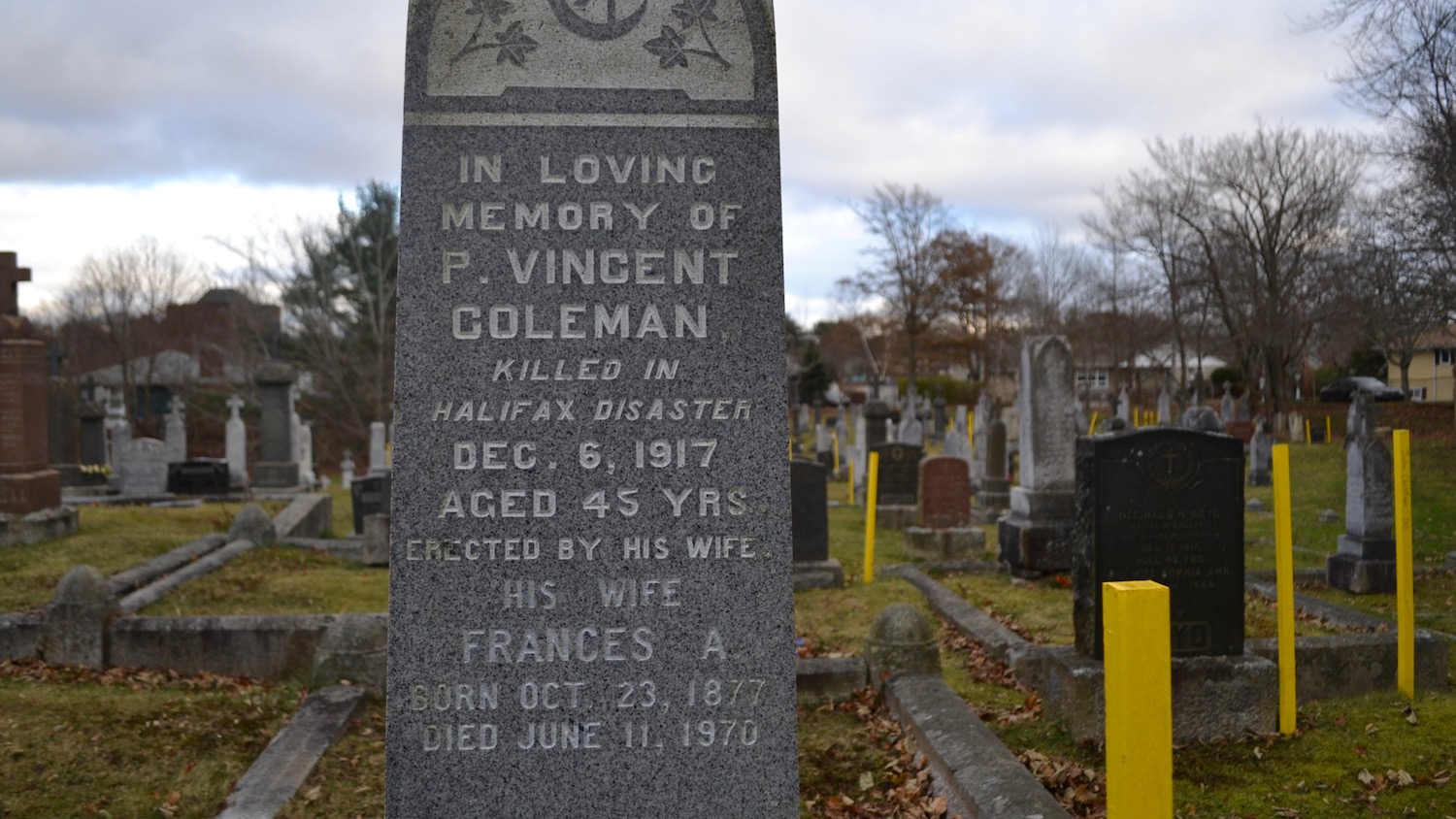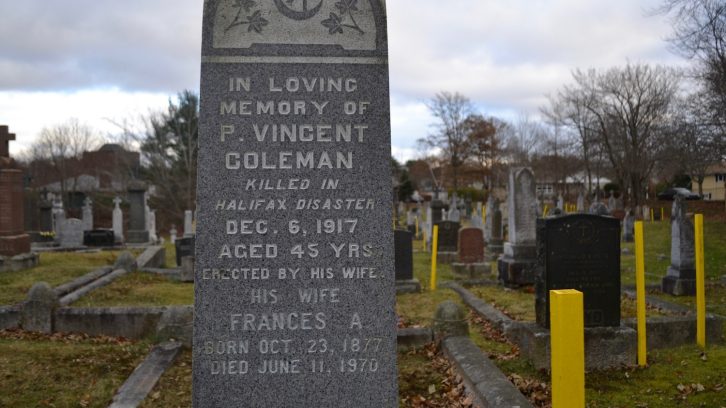Halifax Explosion
Q&A: Researcher creating a database to remember the victims of the Halifax Explosion
Claire Halstead expects to finish the project in January

caption
The grave of Vincent Coleman, a victim of the Halifax Explosion.
caption
The grave of Vincent Coleman, victim of the Halifax Explosion.One hundred years after the Halifax Explosion, Claire Halstead is creating a new way to remember victims of the Halifax Explosion.
Halstead received a grant in May from the Nova Scotia Museum to create the Halifax Explosion Database, an online collection of information about the victims who died due to or because of injuries they sustained in the blast.
Halstead, a post-doctoral fellow with Saint Mary’s University’s history department, used the Halifax Explosion Remembrance Book from Nova Scotia Archives and Records Management to document 1,935 of the 2,000 explosion victims in the database.
She hopes to complete the project in the new year. Related stories
The Signal caught up with Halstead to ask her a bit more about the project.
Why did you decide to start this project?
It’s timely for the 100th anniversary, but also I’m really fascinated with digital history. This could mean looking at digital sources, using digital technology, social media or something as simple as Microsoft Excel. I found that we had the Halifax Explosion Remembrance Book, which is a collection of everyone who died during the Halifax Explosion, but I was sort of intrigued as to the extent to which it hadn’t been analyzed. We didn’t necessarily have the full statistics in one place. And just the fact that it’s 100 years now since the Halifax Explosion, why are we not remembering each and every person who died? The power of digital history is that we get to do that because you can type in a name, a street, an age for instance, and see what comes up. Every person has a huge story to tell and we don’t hear about them because they sort of fall by the wayside, when you have such a huge tragedy. That’s why I think it is really important that we bring them back to the floor and have a little history on each person.
What will the database look like?
It’s currently a giant Excel sheet. I have 1,935 people listed and then for each person I have 46 to 50 fields of data. So, that will be like their occupation, of course their gender, where they lived etc. All of that information will be posted there.
What do you hope people will take from the information?
I hope they will be able to gather a better relationship to the Halifax Explosion, and by that I mean that they’ll be able to sort of see themselves in it and be able to relate to it more. I was speaking to someone today on Twitter about a little girl who died in the Halifax Explosion called Dorothy. She goes ‘oh, my daughter’s name is Dorothy’ and so that is something that strikes a chord. Whether you have a sibling with that name or a child, or you live on that street, that’s something that ties people to it and just sort of makes them think.
Where will people be able to access it?
Where people are able to access it is sort of up to the Nova Scotia Museum. I’ve been wanting to put up my own website, so it’s really a matter of hosting. If I get my website done, I could put it there potentially, otherwise it would have to fall to the Nova Scotia Museum … (to) see if they would like to do that on their site.
What does this database bring that is new to the history of the Halifax Explosion?
I would say (it’s) the merging of a local and a national event with this digital history. I think that’s kind of a unique aspect, especially because the Halifax Explosion has, in previous years, fallen under the radar a little bit. Of course now it’s Canada 150 and everything with an even number, like 150 or 100, everybody loves, so I think that’s why there’s a lot of this fixation with this now. But I think that’s something new, that meeting point and this new data and new way of sharing it.
Is there any additional information you’d like to add?
I think the Halifax Explosion in this centenary is a really good way to look at how the Halifax heritage community is working together. Because it’s mind blowing how many things are coming out from the community in very different forms, and from very different institutions and individuals and scholars and historians. I think that’s very fascinating to see. So it’s sort of all hands on deck, but that’s maybe in the spirit of the Halifax Explosion as well.
This interview was condensed and edited for clarity.

J
Jackie Murphy